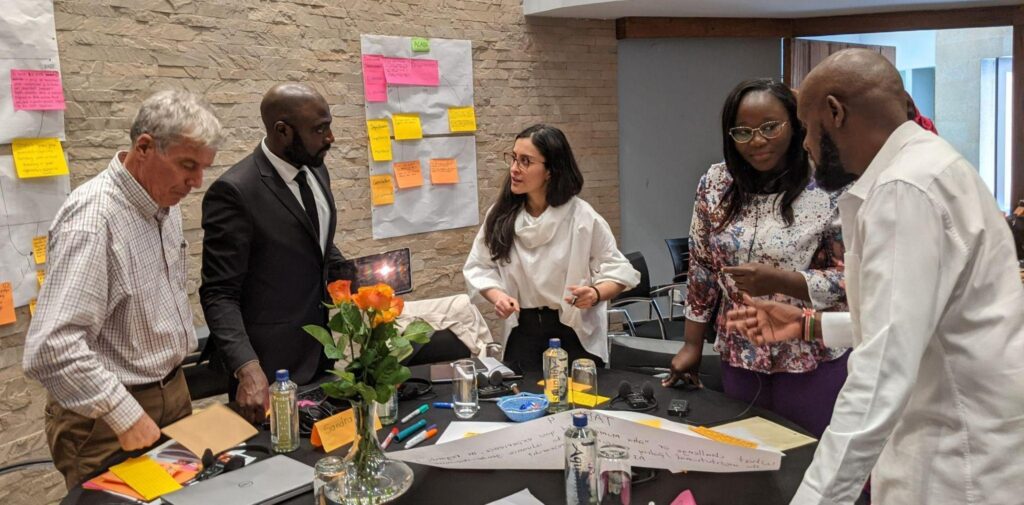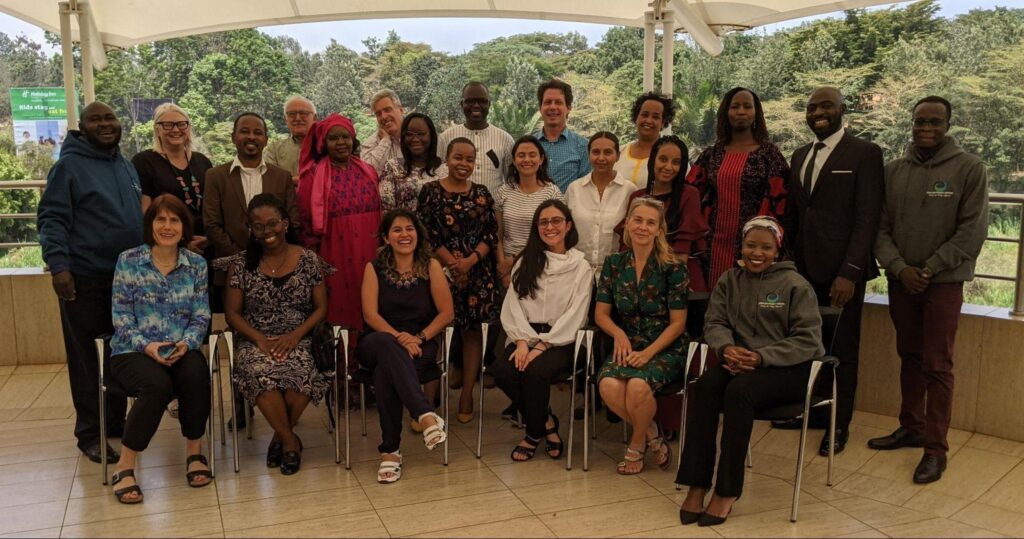In March 2020, WHO declared COVID-19 a global pandemic. Just like what happened during the HIV and Ebola crises, COVID’s impact and public health measures to control it were deeply gendered and unequal. But this time around, unlike previous epidemics, data science and artificial intelligence (AI) were touted as a magic bullet to manage the response. People thought AI might provide ‘one-size-fits-all’ gender-neutral and bias-free solutions.
The reality is that AI often replicates existing biases and does harm. We saw this play out during the COVID response. For example, out of 204 countries’ national COVID-19 data trackers, sex-disaggregated data was consistently under-reported. This discounts the differential vulnerabilities and gender-specific impacts of COVID. For example, how the pandemic worsened interpersonal and online gender-based violence against women and girls. An AI system that lacks gender diversity among its developers, uses gender-blind or biased datasets, and fails to engage the most affected subpopulations and their needs, rights and agency, ends up reinforcing existing discrimination.
Fortunately, multidisciplinary researchers, in partnership with civil society, are committed to tackling such harms and respecting responsible, ethical AI for social good. At Gender at Work, we have had the pleasure of working with such multidisciplinary research teams as part of the Data Science and Artificial Intelligence Research Program to Combat COVID-19, also known as AI4COVID, which was funded by the International Development Research Centre (IDRC) and Swedish International Development Cooperation Agency (SIDA), and implemented in South Asia, Africa and Latin America. These research teams strived to develop AI-driven solutions that integrated gender equality and inclusion (GEI) principles.
A question that drove this research was: What does it take to generate more inclusive, safe, culturally relevant, locally needs-driven AI resources applicable to policies and programs?

This blog series, AI Research and COVID: Journeys to Gender Equality and Inclusion, goes deep into this question through stories of experiences of, and efforts to tackle, gender inequality and exclusions. The voices range from individual pure science and social science researchers to junior and senior team members. In addition, the perspectives of workshop facilitators from the GEI support team, Gender at Work and Ladysmith, a feminist research and advocacy organization, plus IDRC program officers managing the AI4COVID program are shared.
AI researchers learning about gender equality and inclusion
In July 2021, four AI4COVID research partners ― COLEV/University of Los Andes, Colombia; Africa-Canada AI and Data Innovation Consortium (ACADIC), Pan-African; African Population Health Research Centre (APHRC), Kenya/Malawi; and University of Cheikh-Anta Diop (UCAD), Mali/Senegal ― chose to participate in the Gender Action Learning project (the GAL), led by Gender at Work. They embarked on an 18-month journey of learning, experimentation and integrating gender equality and inclusion in their team dynamics, and or in AI-driven research.
The power of peer-based learning
The GAL aims to create strong learning relationships among peers to motivate, build compassion for, and deepen gender responsiveness and inclusivity in internal research teams, the research process and results. The GAL uses a peer-to-peer learning approach via workshops held every six months and face-to-face meetings, combined with regular coaching and co-creation with a Gender at Work or Ladysmith GEI facilitator matched to a research team. Research teams develop and act on a GEI change project that is integral to their research and that aims to enhance their GEI knowledge, practice and results. Team projects involved increasing gender equality and inclusion in national COVID-data monitoring, pandemic responses, research and policy by setting up internal gender working groups to make all this happen.
Using storytelling to consolidate and share learning about GEI
The blogs in this series emerged from a ‘Writeshop’ — or writing workshop — that was part of the final GAL workshop, organized by Gender at Work and Ladysmith in partnership with IDRC in Nairobi, Kenya in February 2023.

Led by an amazing writing coach, Ethan Gilsdorf, the Writeshop explored the potential of storytelling as a tool for individual and collective reflection, sense-making and consolidation of learning from the Gender Action Learning process. The Writeshop was designed to create a safe, reflective space for participants to write about their personal experience of gender and inclusion in their lives, their workplace or their research, and share that writing with each other for feedback and support.
We launch the series with Can AI have its cake and eat it?, in which AI data scientist Amelia Taylor reflects on the conundrums around de-biasing data and representation of COVID-affected populations by gender and other intersectional factors.
The next set of stories speak to individual GEI journeys of how gender and inclusion help us better understand the world. Writers share critical moments when they realize how gender-based discrimination or their localised cultural upbringing and life journeys have informed their values and perspectives as applied researchers. Others draw upon formative life experiences about culture, race, family and workplace.
The stories after this shift to organizational work environments covering topics such as ‘male role models becoming allies to their female colleagues’ and ‘women scientists navigating male-dominated AI and health sectors’.
The stories then focus on AI and health systems exploring the value of gender and intersectionality for more holistic precise public health and AI.
The final blogs delve into ‘what it takes to learn about GEI in AI health research in a virtual world’, from the challenges of zoom-based meetings to the power of reflective writing. A final blog in the series will offer some conclusions by Gender at Work on what the stories tell us about GEI integration in data science and AI driven health research under health crises.
This blog series is edited by Ethan Gilsdorf, writing coach, Loise Ochanda, IDRC, and Gender at Work Associates Carol Miller and Marie-Kate Waller. This introductory blog post was written by Marie-Kate Waller, PhD, Medical Anthropologist in Gender and Human Rights in Health, and Gender at Work Associate. You can find Marie-Kate Waller on LinkedIn, Twitter, and Facebook.
This blog post is licensed under a CC BY 4.0 license. © 2023 Marie-Katherine Waller.
